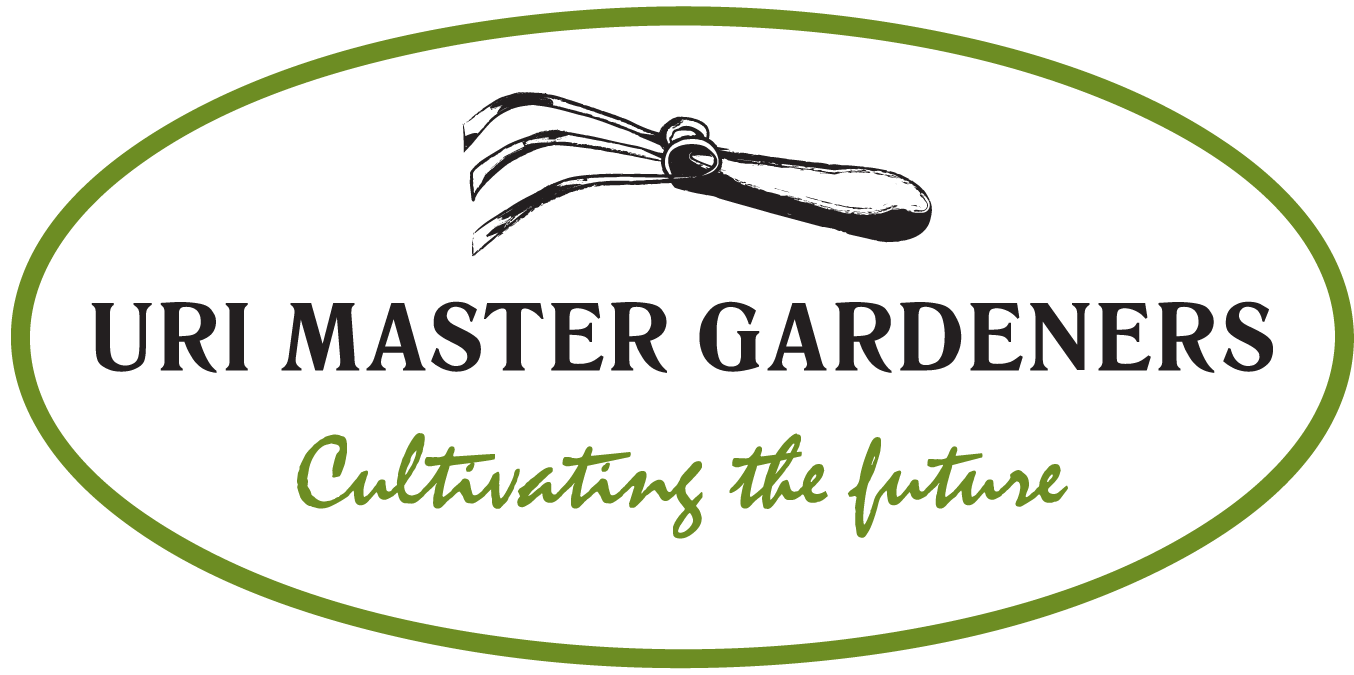URI MGP Newsletter, June 9: Garden Tour is Coming, Newport Rain Garden
Three Season Blooms in Historic East Greenwich
by Sandra Saunders
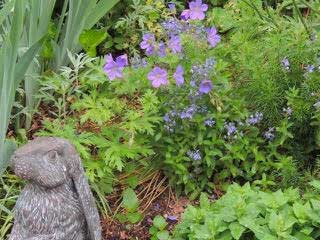 The Gardening with the Masters tour is only a month away. To purchase your ticket, you simply go online to https://web.uri.edu/mastergardener and look for the registration link. You may purchase tickets up until the morning of June 24. Twenty dollars brings you two days of beautiful gardens, great ideas for your own home, the satisfaction of having supported your fellow URIMGs, plus 5 of the 10 continuing education hours you need for 2017. Please share with your family and friends!
The Gardening with the Masters tour is only a month away. To purchase your ticket, you simply go online to https://web.uri.edu/mastergardener and look for the registration link. You may purchase tickets up until the morning of June 24. Twenty dollars brings you two days of beautiful gardens, great ideas for your own home, the satisfaction of having supported your fellow URIMGs, plus 5 of the 10 continuing education hours you need for 2017. Please share with your family and friends!
To whet your appetite once again, read what Sandra Saunders has to say about the development of her property over the last two decades, and enjoy her beautiful images (her photos grace the bookmarks this year).
This was my first perennial garden when we moved to this area about 20 years ago. What drew me to the house in the first place was its location and the beautiful spring display of daffodils, crocuses and alyssum in the front yard. The rest, however, left a lot to be desired: old foundation plantings, a decrepit fence surrounding a huge misshapen pine tree, a scraggly bare back yard, and an 1870 house in need of considerable updating —not what my husband had pictured for our first home together.
I had a vision of our “house on the hill” but very little gardening experience to rely on. The beautiful gardens my English father created when I was growing up were my inspiration. In every season there was something in bloom or interesting structures to catch the eye. So we got to work making the house and yard our own.
Over the years, trees and shrubs were planted, and gardens have been put in front and back creating places for more flowers and vegetables. Every year there is less grass to mow as the beds get larger. Some things have worked and some have not. It continues to evolve as I do.
The yard was once more shady but several large trees have come down which required changing many plants to more sun tolerant varieties. Using native plants is a priority but not exclusive.
Attracting birds and pollinators to the garden is a passion of mine. Birds are incredible beings! I try to create a welcome environment by feeding and providing a dripper as part of the birdbath along with including flowers that attract hummingbirds, butterflies and bees.
Three compost bins in the back utility area provide valuable space for year round plant material disposal. My husband, the chief composter, also shreds the fall leaves and turns the compost bins as needed. The fruits of his labor have greatly enhanced the gardens.
I’m happy to share my secluded garden. Come visit. The design is my creation, I suppose it displays my personality. It is my solace and gives me peace.
Additional Volunteers Needed at Smith’s Castle
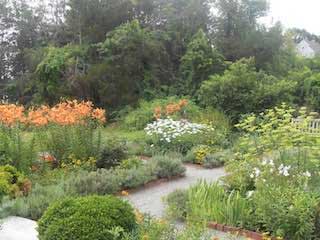 The URI Master Gardeners at Smith Castle are looking for assistance to help unload and spread bags of mulch and compost on Wednesday June 14th and June 28th. Delivery is expected at 4:00. Volunteer hours are direct service hours.
The URI Master Gardeners at Smith Castle are looking for assistance to help unload and spread bags of mulch and compost on Wednesday June 14th and June 28th. Delivery is expected at 4:00. Volunteer hours are direct service hours.
Smith’s Castle is located at 55 Richard Smith Dr., North Kingstown, RI. For more information, please contact Cynthia Corbridge at ccorbridge@cox.net.
Help Wanted: Docents for Gardening with the Masters Tour
Would you like to help welcome the public to our garden locations during the Gardening with the Masters Tour? Garden tour docents will be trained by the hosts to teach the lessons of the garden. We have 2 shifts for garden tour docents from 10am-1pm and 1pm -4pm on both days of the tour, June 24 and 25. Sign up for one or both shifts to get a nice chunk of volunteer hours! All volunteer hours are entered under “Garden Tour – DIRECT EDUCATION SERVICE” in Volgistics.
To sign up:
Shifts are available in Cranston, Cumberland, East Greenwich, North Kingstown Richmond, Saunderstown and Tiverton. Please sign up for a shift in Volgistics by clicking on “my schedule” and then selecting “June”. Deadline to sign up for a shift is Monday, June 12, 2017.
New Rain Garden Installed in Newport's King Park!
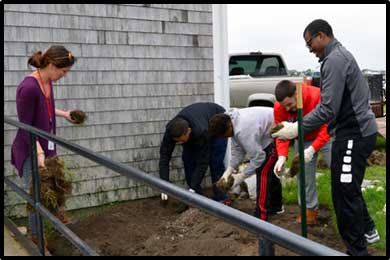 URI Master Gardeners installed a demonstration rain garden last Saturday in Newport’s King Park to help encourage residents to follow suit. “One residential rain garden can absorb 25,000 gallons of water a year,” said Johanna Vietry, URI Master Gardener Project Leader. The garden was planted with drought tolerant native plants that also provide pollen and nectar to support pollinators. This innovative garden has been met with great enthusiasm from the community.
URI Master Gardeners installed a demonstration rain garden last Saturday in Newport’s King Park to help encourage residents to follow suit. “One residential rain garden can absorb 25,000 gallons of water a year,” said Johanna Vietry, URI Master Gardener Project Leader. The garden was planted with drought tolerant native plants that also provide pollen and nectar to support pollinators. This innovative garden has been met with great enthusiasm from the community.
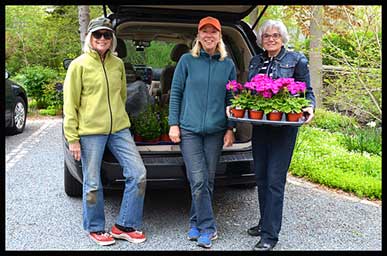 The rain garden was installed by URI Master Gardener volunteers and Rogers High School Horticulture students in partnership with Newport Friends of the Waterfront. The installation of the rain garden was accompanied by a rain garden demonstration attended by over 100 people and a tour by professionals involved in the Green Infrastructure Coalition. The team has created a rain garden presentation which will be added to our list of public presentations available to the public. Congratulations to all who were involved in a successful public education effort!
The rain garden was installed by URI Master Gardener volunteers and Rogers High School Horticulture students in partnership with Newport Friends of the Waterfront. The installation of the rain garden was accompanied by a rain garden demonstration attended by over 100 people and a tour by professionals involved in the Green Infrastructure Coalition. The team has created a rain garden presentation which will be added to our list of public presentations available to the public. Congratulations to all who were involved in a successful public education effort!
Read more from the Newport Daily News about this and other efforts to manage stormwater in Newport.
Pollinator Power!
The following poem was written by URI Master Gardener, Noreen Kepple and shared with students in her role as School Garden Mentor. Enjoy!
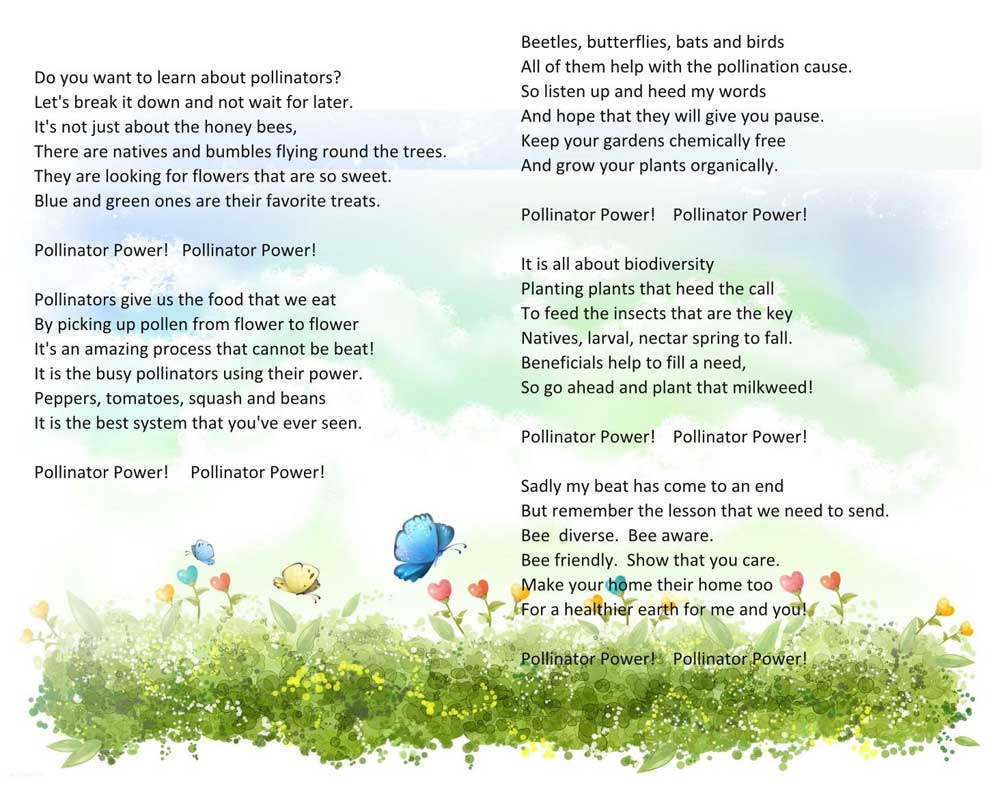
Summer is the perfect time to learn in the field!
All Continuing Education Offerings This Summer!
July Continuing Education Classes
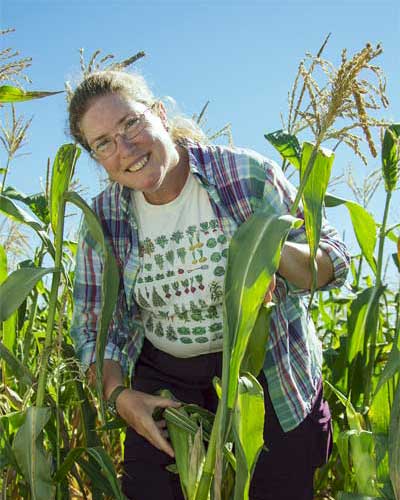 URI Agronomy Farm Tour
URI Agronomy Farm Tour
July 19th, 10-11:30 am
Agronomy Farm, URI Kingston campus
Dr. Rebecca Brown, URI Plant Sciences
Join Professor Rebecca Brown for a tour of the URI Agronomy Farm. The URI Department of Plant Sciences and Entomology manages over 50 acres of turfgrass, horticulture, and agronomy farms for teaching, research, and outreach. Attendees would be able to see various cover cropping strategies, vegetable production and season extension techniques.
Please register in Volgistics.
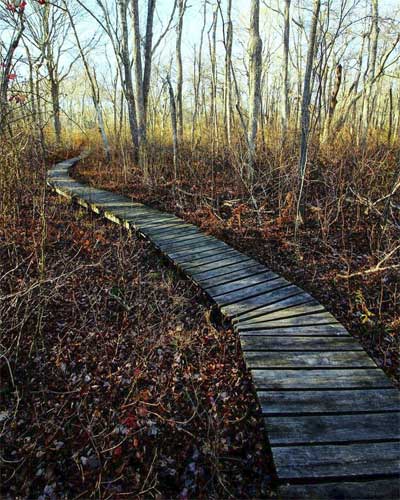 Habitat Restoration Walk at Norman Bird Sanctuary
Habitat Restoration Walk at Norman Bird Sanctuary
Norman Bird Sanctuary, Middletown
July 20th, 3-5 pm
Hope Leeson, RI Natural History Survey
Learn about how to increase habitat resiliency on a landscape level with RI’s premier botanist. Coastal forests provide habitat for migratory nesting birds; a critical function which is at risk due to changes in the plant community. In this walk you learn how removing invasive species from the forest and replanting with diverse local ecotypes of native species play an important role for wildlife. We’ll also gain a greater understanding of the influence white-tailed deer exert on forest regeneration at the Sanctuary.
Please register in Volgistics.
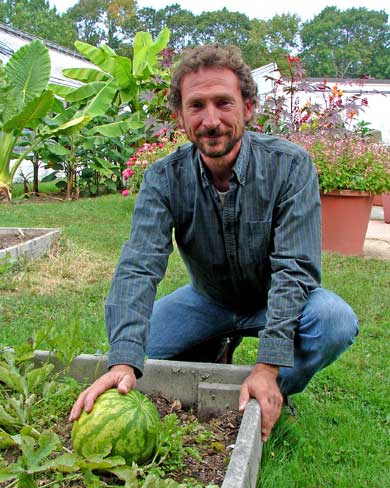 URI Agronomy Farm Tour
URI Agronomy Farm Tour
July 26th, 5-6:30 pm
Agronomy Farm, URI Kingston Campus
Andy Radin, URI Cooperative Extension
Join URI Agricultural Extension Agent Andy Radin for a tour of the URI Agronomy Farm. The URI Department of Plant Sciences and Entomology manages this Agricultural Experiment Station Farm for teaching, research, and outreach. Attendees will learn about several vegetable crops research projects in progress, and there will be open discussion about soil health, pest management and other topics of interest.
Please register in Volgistics.
August Continuing Education Classes
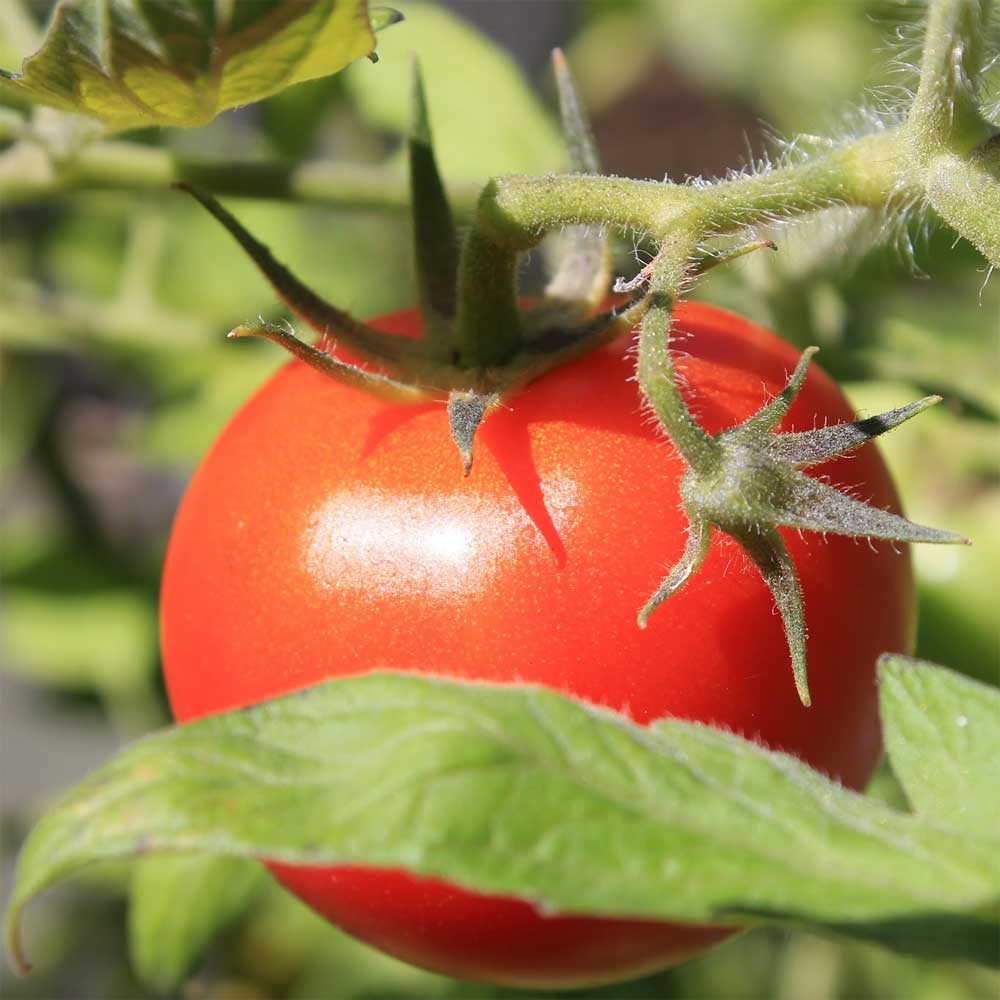 Diagnostics Skill-Building Series: Vegetables
Diagnostics Skill-Building Series: Vegetables
URI East Farm Demo Garden
August 8th, 5:30-8:00 pm
We will meet at East Farm MG Field House and will study in the Demonstration Vegetable Garden. Our walkabout through the garden will highlight common symptoms and organic controls and techniques to share with clients. Because the garden is so well tended we may not find a lot of problems, so bring a photo or sample of a vegetable problem you may be having. August and September are the peak months of harvest and all the resources we have throughout the state will be at full strength.
Please register in Volgistics.
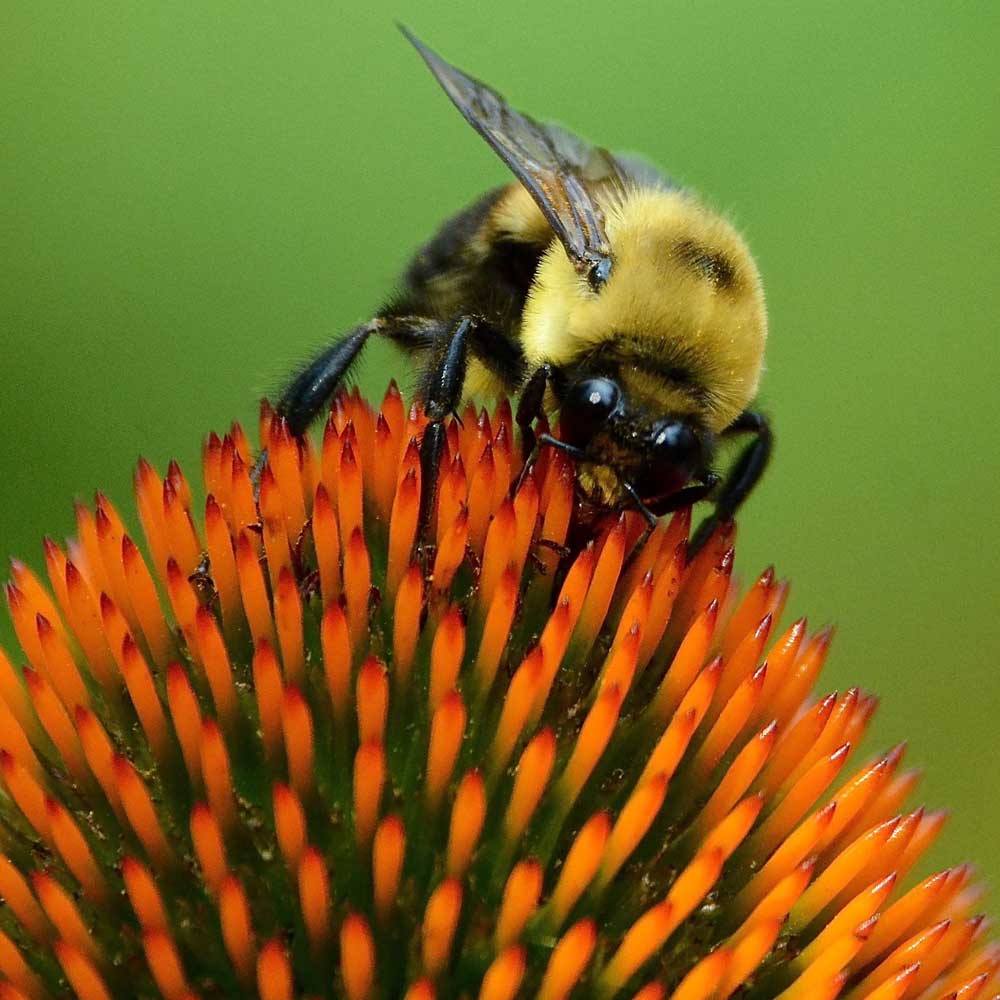 Pollinator Meadow Walk
Pollinator Meadow Walk
Location (To be determined)
August 17th, 5:00-7:00 pm
Join Natural Resources Conservation Services Biologist Gary Casabona exploring a pollinator meadow in Rhode Island.
The lecture will include all of the key topics for establishing quality pollinator habitat:
- The many different options for site preparation — which is perhaps the most important step toward success of a pollinator seeding !
- Recommendations on the best woody and herbaceous plants, and the reasons why they are valuable to both pollinators and migratory birds, will be discussed in detail.
- Ongoing mowing and maintenance practices to maintain a large percentage of native wildflowers with relatively few invasives.
Please register in Volgistics.
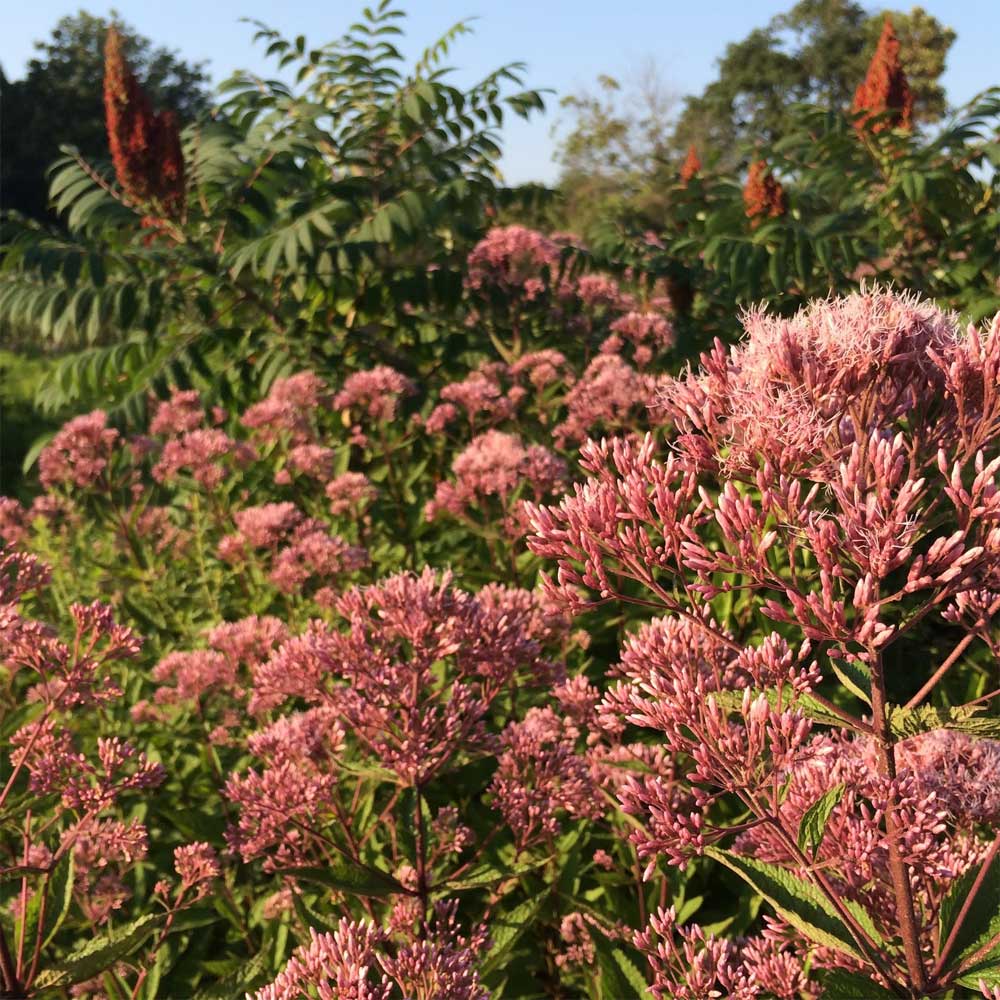 Invasive Plant Management: Late Season Strategies and Methods for Restoring Habitat
Invasive Plant Management: Late Season Strategies and Methods for Restoring Habitat
August 31st, 9-12 pm
Canonchet Farm, Narragansett
Join Thomas Fortier, for session 2 of a guided field study at Canonchet Farm Habitat Restoration. While participants are not required to attend both sessions, the effective strategies for invasive plant removal and habitat restoration in the late season vary significantly from those used in the early season. We’ll look at the methods for restoring the native plant complexes and delve into plant identification. Each participant will have the chance to try out a range of tools for invasive removal. Dress for field work. Space is limited.
Please register in Volgistics.
Hot Topics from the URI Consumer Horticulture Educator
 The following science-based articles may help you answer questions from the community. Rosanne Sherry, URI Consumer Horticulture Educator, recommends you read them to help sharpen your own gardening and educator skills! Please send comments or suggestions for articles to rsherry@uri.edu.
The following science-based articles may help you answer questions from the community. Rosanne Sherry, URI Consumer Horticulture Educator, recommends you read them to help sharpen your own gardening and educator skills! Please send comments or suggestions for articles to rsherry@uri.edu.
Regional resources from New England Wildflower Society for learning about native plants.
http://gobotany.newenglandwild.org An excellent way to learn how to identify plants you find on a walk. http://www.newfs.org/conserve/controlling-invasives
From ELA Newsletter May 2017
http://www.ecolandscaping.org/05/native-plants/disconnect-garden-aesthetics-local-ecology/
Worth reading from New Terrain May 1, 2017
Beloved 600-year-old white oak tree takes final bow by Bruce Shipkowski on Phys.org.
Three Ways to Urban Agricultures: Digging into Three Very Different Offerings from Three New Books by Wayne Roberts on Medium.com.
Half of All Species Are on the Move—And We’re Feeling It by Craig Welch for National Geographic.com.
IPI Datebase
The IPI database contains summaries of research articles on pesticides, their effects on invertebrates, and pesticide movement in the environment. Articles have been reviewed and summarized to highlight key findings by Xerces Society staff. http://www.pesticideimpacts.org
Very interesting article dispelling the myth of Epsom salts.
https://puyallup.wsu.edu/wp-content/uploads/sites/403/2015/03/epsom-salts.pdf
From New Terrain May 15, 2017
GrowIt!, that app that folks can use to “garden socially,” as they put it, has teamed up with the National Wildlife Federation to help promote the Garden for Wildlife initiative. The idea is to help show the GrowIt! community and all of North America how they can have a beautiful garden, while promoting a healthy ecosystem. Gardeners can create a full habitat in their garden by providing food, water, shelter and a place for wildlife to raise young.
“Our goal is to inspire more people to think about wildlife when they are out in the garden. We’re asking people to capture pictures of critters in their yard and post them to GrowIt! with the hashtag #Garden4Wildlife to show others how they can also work to be better stewards of the environment,” says the GrowIt! press release.
To learn more about the Garden for Wildlife initiative, follow this link: www.nwf.org/Garden-For-Wildlife.aspx
Understanding What Makes Plants Happy by Margaret Roach in the New York Times.
Going Native–National Wildlife Federation by Barry Yeoman for National Wildlife magazine.
Broader Role for Botanical Gardens by Doreen Cubie for the National Wildlife Foundation.
 Home
Home Browse
Browse Close
Close Events
Events Maps
Maps Email
Email Brightspace
Brightspace eCampus
eCampus


